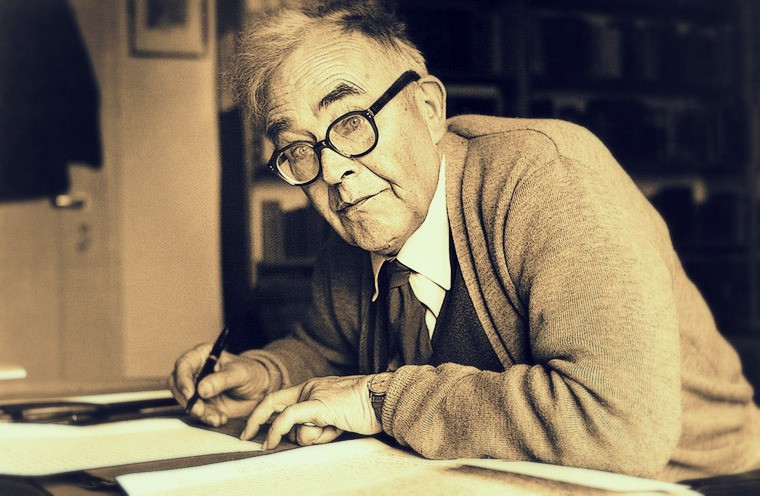 One of the features of Barth’s mind and work concerns the relentless nature of his questions by which he penetrates his topic, lays open its inner dynamic, and presses his criticism. Barth probes and interrogates his conversation partners by means of his questions. An example is seen in Church Dogmatics II/2:63-64. Barth has shown that the Reformers and their heirs want to look to Jesus as the ground of their assurance with respect to divine election. Strong statements are found in the tradition, by Luther, Melanchthon, Calvin, Bullinger, the Helvetic Confession, the Formula of Concord, and so on. Nevertheless Barth subjects the tradition to a dozen probing questions, although ultimately, they are all variations of the one central question:
One of the features of Barth’s mind and work concerns the relentless nature of his questions by which he penetrates his topic, lays open its inner dynamic, and presses his criticism. Barth probes and interrogates his conversation partners by means of his questions. An example is seen in Church Dogmatics II/2:63-64. Barth has shown that the Reformers and their heirs want to look to Jesus as the ground of their assurance with respect to divine election. Strong statements are found in the tradition, by Luther, Melanchthon, Calvin, Bullinger, the Helvetic Confession, the Formula of Concord, and so on. Nevertheless Barth subjects the tradition to a dozen probing questions, although ultimately, they are all variations of the one central question:
In all these texts, however, (even those of Luther and the Lutherans) there is something unsatisfactory about the christological reference, factually important though it undoubtedly is. The reason for this is that notwithstanding all these earnest protestations the following question still remains unanswered: Is it the intention of these thinkers that serious theological attention should be paid to the assertion that the election is to be known in Jesus Christ? Does this assertion contain the first and last word on the matter, the word by which we must hold conclusively, and beyond which we must not conceive of any further word? Is it a fact that there is no other basis of election outside Jesus Christ? Must the doctrine as such be related to this basis and this basis only? Must it take account only of this basis? In this matter of election are we noetically to hold by Christ and Christ alone because ontically there is no election and no electing God outside him? Or is it rather the case that we are to understand this assertion merely as an impressively stated pastoral rule, a practical direction regarding the attitude which, rebus sic stantibus [as things stand], we ought to adopt towards this matter if we are not to be plunged into doubt or despair? Is it the case, in fact, that behind the pastoral (and in some measure the historico-psychological) truth that God’s election meets us and is revealed to us in Jesus Christ, there stands a higher truth which, for the sake of prudence and charity, must be withdrawn from the practical usage of the Church, a truth which cannot be denied or entirely suppressed, but which is so dangerous that it must be covered over and kept out of the reach of the curious like a kind of poison? Is it the case that, according to this higher and dangerous truth concealed for practical purposes in the background, while Christ is indeed the medium and instrument of the divine activity at the basis of the election, and to that extent He is the revelation of the election by which factually we must hold fast, yet the electing God Himself is not Christ but God the Father, or the triune God, in a decision which precedes the being and will and word of Christ, a hidden God, who as such made, as it were, the actual resolve and decree to save such and such men and to bring them to blessedness, and then later made, as it were, the formal or technical decree and resolve to call the elect and to bring them to that end by means of His Son, by means of His Word and Spirit? Is it the case, then, that in the divine election as such we have to do ultimately, not with a divine decision made in Jesus Christ, but with one which is independent of Jesus Christ and only executed by Him? Is it the case that that decision made in Jesus Christ by which we must hold fast is, in fact, only another and later and subordinate decision, while the first and true decision of election is to be sought—or if we follow the pastoral direction had better not be sought—in the mystery of the self-existent being of God, and of a decree made in the absolute freedom of this divine being?